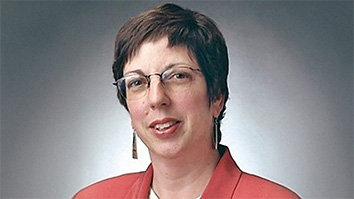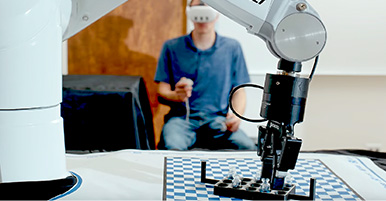Enabling independent living for seniors, reducing preventable hospitalizations and transitions to nursing homes.
CHALLENGE AND GOAL
The world’s population is aging rapidly. Almost every country in the world is experiencing growth in both the number and the proportion of elderly persons. The proportion of people aged over 60 years will double from about 11% to 22% between 2000 and 2050.
Although everyone wants to grow old in their own homes, aging in place often is difficult because seniors require a higher level of medical care.
SOLUTION AND OUTCOME
Researchers at SRI International created the Studio on Aging to develop technologies that help caregivers anticipate adverse health conditions for seniors in order to reduce preventable hospitalizations or transitions to nursing homes.
The technologies serve a variety of purposes, such as enabling caregivers to track health conditions tracking, measure the level of confusion due to medication interactions, and conduct fall risk assessments.
Aging is one of the most significant social transformations of the 21st century, with implications for nearly all sectors of society, as well as family structures and inter-generational ties.
Yet at the same time that the world’s population is aging, the number of available caregivers is shrinking. The ratio of family caregivers relative to the number of older persons is shrinking rapidly. Also, the number of professional caregivers (e.g. geriatricians) is not keeping pace with the aging population.

Geriatricians speak of the importance of understanding what is happening with a senior throughout the day. For example, are patients well hydrated? Are they taking their medications? Is there a sudden and unexplained weight loss? The list is endless. However, the challenge is that often subtle changes in a senior’s condition go unnoticed, leading to an otherwise preventable injury, emergency room visit, or long-term hospitalization.
In order to develop solutions to these challenges, researchers at SRI created the Studio on Aging. Over the course of two years the team developed solutions such as:
- ChatPal – a conversational virtual assistant that engages seniors in dialog and helps track various health conditions.
- Confusion detection – by analyzing a person’s voice, this system automatically establishes the level of confusion a senior has. This is a common side effect of many medications for the elderly.
- Fall risk assessment – a solution that focuses on measuring subtle changes to a senior’s gait and balance to assess their risk of falling.
- Gastrointestinal health – issues such as chronic constipation, diarrhea and dehydration can be automatically tracked and quantified in the toilet. This project deploys a novel approach to monitoring such conditions without human intervention.



